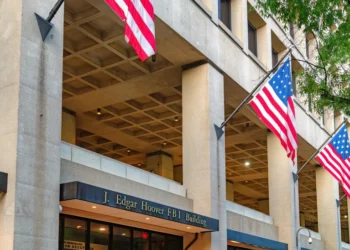Oil spills in Nigeria’s mangroves are likely to remain a salient problem as the oil sector expands in size in the country and the agency responsible for reporting and cataloging environmental degradation in the country finds itself understaffed.
Despite mitigation policies to address the incessant oil spills and the associated environmental damages in the Niger Delta, the problem persists. In fact, the National Oil Spill Detection and Response Agency (NOSDRA) reported that, since 2006, over 130 million liters of crude oil spillages occurred in the Niger Delta. A significant portion of the oil spills, estimated at 76.77%, is lost to the environment, while only about twenty-three percent is being recovered.
The worrisome spate of oil spills in the region is attributed to the use of obsolete equipment and poor maintenance practices of transnational oil companies, and the illicit activities of pipeline vandalism and oil theft by the local people. Oil theft is a worrisome occurrence in the Niger Delta, and it is driven by the quest for alternative livelihoods by the local people who have been displaced from their traditional farming and fishing activities by incessant oil pollution from the extractive practices of transnational oil corporations.
These issues have exposed a fatal weakness in Nigeria’s environmental policies regarding the mitigation of oil spills and the associated environmental crisis in the Niger Delta.
Another important dimension is the lack of reliable data on the magnitude of oil spills and the impacts on the vital environmental resources that sustain the lives and well-being of the vast majority of the region’s predominantly rural population, where most of the local dwellers rely on agricultural and piscatorial subsistence practices for their livelihood and food security, well-being, and survival. This has raised international concern about the extent of the ecological damages caused by oil spills to the rich biodiversity in the Niger Delta and the associated threat it poses to the survival of the ecosystem and the people.
Crisis in Monitoring and Transparency Regarding Oil Spills in Nigeria’s Mangroves
The unreliability of data on the scale and spread of oil spills disseminated by monitoring agencies like NOSDRA makes it more difficult to establish the magnitude of the damages to the Niger Delta’s rich biodiversity. NOSDRA continues to face institutional and financial barriers to effectively monitor oil spill events, resulting in situations where transnational oil corporations have provided funding for spillage monitoring, raising serious conflict-of-interest concerns. Analysts have not been able to provide accurate and precise estimates of the quantity of oil spills due to systematic underreporting, incomplete data, and inadequate monitoring and oversight.
The vast and complex terrain of the Niger Delta, an estuarine environment of mangrove forests fractured by small rivers and streams, presents a further challenge for comprehensive ground-based monitoring. In this context, Earth Observation-empowered surveying of the region offers a cost-effective and impartial solution to large-scale environmental assessments.
A New Approach: EO and Machine Learning
In our recent article, we use high-resolution (ten-meter) Earth Observation (EO) synthetic aperture radar (SAR) data from the Sentinel-1 satellite constellation, combined with machine learning, to track the spatial land cover changes associated with oil pollution-induced mangrove mortality across 9,000 km² of Rivers State. Our findings revealed significant deforestation from 2016 to 2024, with an estimated mangrove mortality rate of 5,644 hectares/year.
With the use of an empirically derived Pipeline Impact Indicator (PII), we mapped the oil pipeline network that cuts through the mangroves to uncover specific pipeline locations in need of immediate intervention and restoration to reduce the ongoing destruction of the surrounding environment. Our work identified several pipeline sites showing evidence of significant oil spill damage that have yet to be formally reported.
Our study maps and quantifies the extent of oil spill impacts on the mangrove in coastal regions of River State, where major global petrochemical corporations, including Shell, Agip, Mobil, and Chevron, have operated since the 1960s. The study focuses on the coastal areas around Bille and Bonny Island – areas characterized by extensive mangroves and where the primary economic activities of the communities depend on fishing and farming. Rivers State, with the capital located in Port Harcourt, has several major oil fields, a high density of active oil wells, and associated petrochemical infrastructure, including the Bonny Oil Terminals, which are the main Atlantic coast export point for crude oil from the Niger Delta to international markets. It is one of the major oil-producing states in the Niger Delta, producing around twenty percent of Nigeria’s estimated daily production of 1.476 million barrels of crude oil per day.
Our findings highlight several epicenters of ecological degradation, which are aggravated by the incessant occurrence and rapid spread of oil spills over time in the affected areas of Rivers State. This poses a significant threat of irreversible damage to the mangrove ecosystem unless more effective remediation efforts are implemented and the rate of oil spill occurrences is reduced. In fact, related studies show that the dumping of sulfidic dredged materials along the banks during ongoing dredging and channel widening operations by oil companies has resulted in mangrove suffocation through soil acidification and heavy metal pollution, which adds further momentum to the drivers of ecosystem collapse.
Due to the frequency of oil spills, there has been a significant decrease in vegetation density, and the ongoing remediation and clean-up operations have proven largely ineffective in slowing the expansion of bare land and land subsidence in the affected areas. Our study detected an unprecedented spike in the area of polluted land in 2022, which we associate with the substantial quantity of oil spilled in the area in 2022. The largest of these spills saw the loss of 26,000 barrels of oil over two months, and only 810 barrels were reportedly cleaned up.
The spills occurred in a tidal zone over a long period and most likely spread throughout the Niger Delta and contributed to the extensive damage to the mangrove forests that was visible over an extended area. This widespread spill, in particular, led to an accelerated rate of mangrove decline observed across a broad area of the Niger Delta. While there is a high frequency of low-quantity spills along the pipelines surrounding the Port Harcourt area, most of the largest oil spills in recent years have occurred around Bille, near Bonny Island. Delayed and inadequate cleanup responses by transnational oil companies have exacerbated and prolonged the degradation of the mangroves and accelerated land degradation in the region.
Bille has been exposed to a large accumulated quantity of crude oil spillages relative to the length of the pipeline infrastructure component in the area. This has led to significant pollution-induced deforestation, and some of the affected areas are already devoid of vegetation at the time of reporting. The affected areas require urgent intervention and remediation due to the extensive damages caused by the large quantity of spills distributed over an extended time. It was also discovered that some of the areas in the north of Bille, which had no reported spills during our study, showed unexpected contamination – suggesting the possibility that oil-bunkering activities contribute to the pollution-induced deforestation in these areas.
Systemic Failures Driving Ecological Collapse and a Call for Change
It is clear that there are significant issues with the current system of self-reporting, which brings into question the transparency, completeness, and reliability of the reports. The insufficient remediation and lack of accountability that stem from under-reporting continue to cause severe environmental, socioeconomic, and cultural consequences for the Niger Delta. Unless there is effective, timely and transparent monitoring and detection of oil spills, it is likely that the region will reach a point of irreversible damage to the mangroves and their biodiversity within twenty-five to thirty years, both of which are vital to the survival of the environment and people in the Niger Delta.
Apart from the necessity of stringent implementation of environmental policies to regulate the oil industries, the institutional lapse in the oil spill monitoring agency NOSDRA needs to be addressed to facilitate rigorous and comprehensive monitoring of oil extractive regions by using satellite remote sensing.
The Niger Delta region is an ecologically vulnerable region where the vital environmental resources crucial to the survival, livelihood, food security, cultural identity, and well-being of the people are constantly threatened by incessant oil spills from oil exploration, production, and distribution activities of transnational oil corporations and the sabotage of pipelines by local people for economic incentives. An accurate assessment of the scale of oil spills and the existential threat they pose to the survival of the inhabitants of the Niger Delta can incentivize the local people involved in oil theft, artisanal oil refining, and oil bunkering activities to desist from such activities.
The Niger Delta environment harbors the people’s sociocultural identity and life-world. Designing an effective mitigation and remediation policy must include objective and efficient methods for monitoring spill sites, quantifying the magnitude of pollution events, and assessing the impact on the surrounding ecosystems.
Professor Abosede Omowumi Babatunde is an associate professor at the Center for Peace and Strategic Studies, University of Ilorin, Nigeria and served as an AfOx Visiting Fellow at the Africa Studies Centre, University of Oxford, as part of the Africa Oxford Visiting Fellowship Programme. She holds a Ph.D. in Peace and Conflict Studies from the University of Ibadan, Nigeria, and received her Master’s Degree in Peace and Conflict Studies in 2005. She also holds a Bachelor of Science in Economics from the University of Ibadan, Nigeria.
Professor Aaron Golden is an Associate Professor in the School of Natural Sciences at the University of Galway. He is an astronomer and experimental physicist whose research focuses on today’s most pressing challenges in healthcare, the environment, and the planet’s climate. He currently serves as the Vice-Dean for Research and Innovation for the College of Science and Engineering at the University of Galway. Dr. Golden holds a BA (Mod.) Physics from Trinity College Dublin, an MSc in Computational Science from Queens University Belfast and a Ph.D. in Astrophysics from University College Galway.
Jemima O’Farrell is a graduate of Astrophysics at the University of Galway and now works as a geospatial analyst for EcoFoodSystems. She received her B.S. in Astronomy and Astrophysics from the University of Galway. She was also a Summer Undergraduate Research Fellow at Caltech in 2021.
Image: Shutterstock/MaximTrukhin














